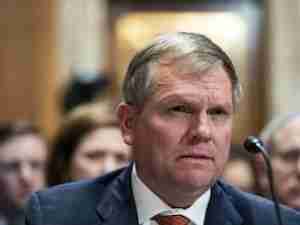Faiveley is in talks with the Chinese Ministry of Railways on high-speed rail, Thierry Barel said, after investment in rail equipment in China had been suspended following a fatal train accident in Wenzhou last July.
India could make significant orders for locomotives this year, while the metro business is also booming there, the CEO added.
"There have been discussions on a number of mega-projects on diesel and electrical locomotives and regional trains for quite significant quantities," Barel said. "However, for political reasons, projects have been postponed. But it would seem that this year, locomotive orders could take place in India."
Faiveley designs and manufactures couplers, air-conditioning units, braking systems and doors for trains, metros and tramways.
The company derives more than 60 percent of sales from Europe, but is already present in the Asia-Pacific area, where it won contracts to equip metro systems in India's Chennai and several major Chinese cities in the first half of 2011.
In Europe, Faiveley wants to build on its position in neighbouring Germany, where it has won contracts worth 210 million euros ($271 million) from Siemens and Bombardier to supply equipment for Deutsche Bahn trains.
Rail freight in the United States, meanwhile, where Faiveley set up a joint venture with rail equipment supplier Amsted in 2010, is benefiting from changing energy needs, Barel added.
"In the U.S, the freight market is growing thanks to renewable energies, shale gas and ethanol transport and the upgrade of locomotives in relation to the Cleaner Air Act," Barel said, though growth would be more moderate than planned.
Faiveley, which has a market value of around 700 million euros, extended the maturity of its debt last July until June 2016. It is looking at credit financing possibilities but the bond market is unattractive given Faiveley's size, Barel said.
"The group is continuing its efforts to make its structure flexible to deal with possible temporary drops or delays in orders," Barel said, adding that efforts to reduce structural costs were in line with the company's goals. (Reuters)







